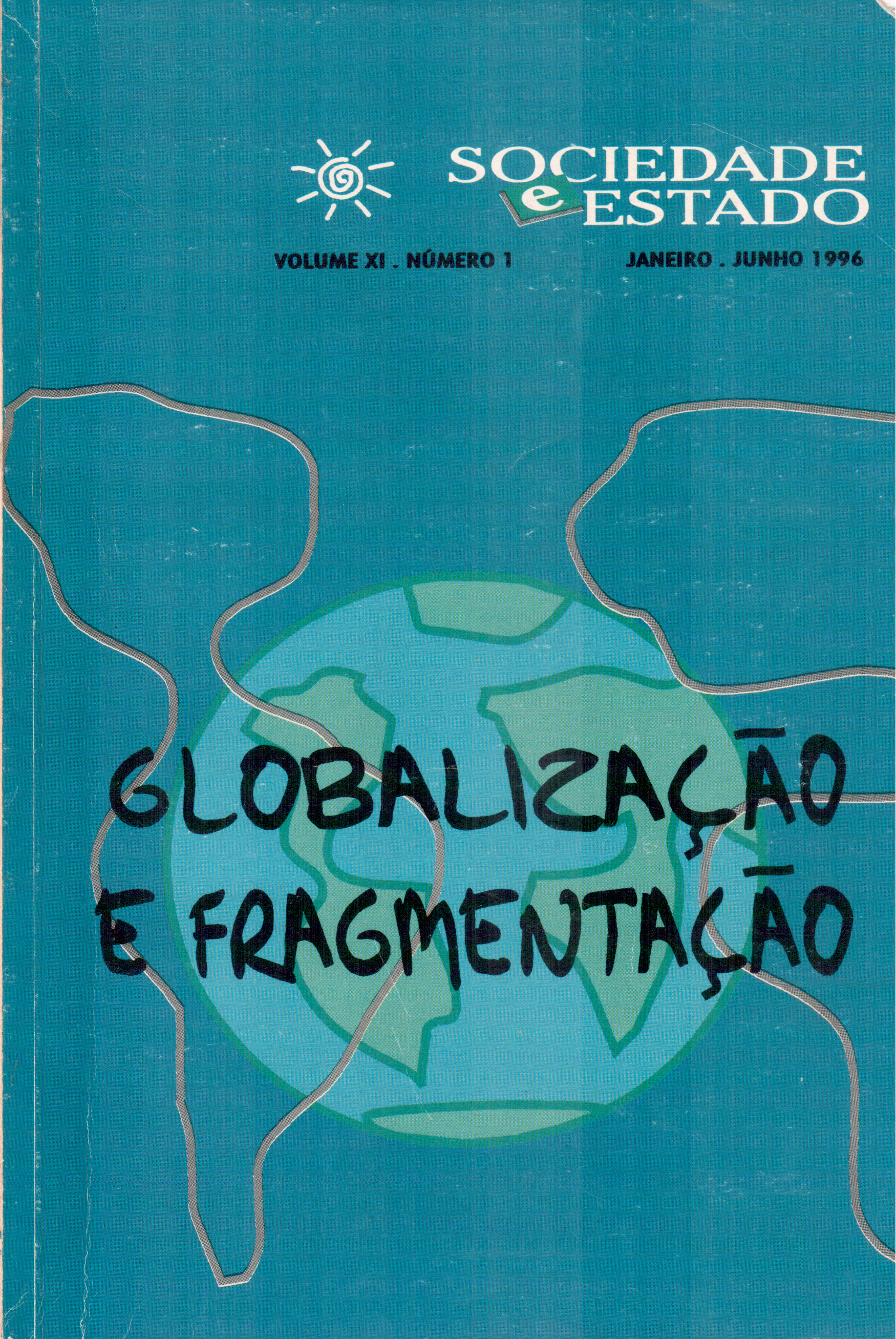REPRESENTAÇÕES GEOGRÁFICAS DA IDENTIDADE NACIONAL: O CASO NORTE-AMERICANO
Palavras-chave:
.Resumo
O presente artigo relaciona a imagem da conquista do Oeste com a construção da identidade nacional nos Estados Unidos. A conquista de novos espaços territoriais, ocorrida durante o século XIX, foi narrada sob a forma de uma versão mítica do processo histórico. Apresenta diferentes linhagens de autores que analisam e criticam o tema da fronteira; mostra como fronteira, Oeste ou natureza estão presentes na interpretação do significado da criação dos parques nacionais na América. Por fim, indica como o espaço geográfico reaparece hoje no momento em que a globalização e o desenraizamento estão questionando a relação natural entre nação e território
Downloads
Referências
Amado, Janaina (1995) “Construindo mitos; a conquista do oeste no Brasil e nosEUA”, in Sidney Valadares Pimentel e Janaina Amado (orgs.). Passando dos limites. Goiânia: UFG.
Divine, Robert A. et al. (1992) América, passado e presente. Rio de Janeiro: Nórdica.
Gregory, Derek (1994) Geographical Imaginations. Cambridge, MA/ Oxford, UK: Blackwell.
Gupta, Akhil & Ferguson, James. (1992) “Beyond Culture: Space, Identity and the Politics of Difference”. Cultural Anthropology 7:6 , p. 6-23.
Harvey, David (1990) “Between Space and Time”. Annals of the Association of American Geographers 80(3) p. 418-34.
Hietala, Thomas R. (1989) Manifest Design: Anxious Aggrandizement in Late Jacksonian America. Cornell University Press.
Kirby, Andrew (1991) “The Great Desert of the American Mind: concepts of space and time and their historiographic implications”, in Brown, Jo Anne & Van Keuren, David (eds.), The State of Social Knowedge. Baltimore: The Johns Hopkins University Press.
Lacapra, Dominick (1983) Rethinking Intellectual History: Texts, Contexts, Languages. Ithaca, New York.
Lepenies, Wolf. (1988) Between Literature and Science: The Rise of Sociology. Cambridge University Press.
Limerick, Patricia (1987) The Legacy of Conquest: The Unbroken Past of the American West. New York: Norton.
Malone, Michael P. (1989) “Beyond the Last Frontier: Toward a New Approach to Western American History”. Western Historical Quarterly n.° 20 (4), p. 409-27.
Meining, D. W. (1993) The Shaping of America. Vol. 2. Continental America, 1800-1867. Yale University Press.
Miller, Perry (1955) “The Romantic Dilemma of American Nationalism and the Concept of Nature”. Harvard Theological Review, n.°48, p. 239-53.
Nash, Roderick (1970) “The American Invention of National Parks”. American Quarterly n.° 22 ( Fall), p. 726-35.
Oliveira, Lucia Lippi (1994) “América hoje: comemorando o quê?”. Estudos Históricos, Vol. 7, n.° 14, p. 291-304.
________(1995) “Turner e a fronteira” (mimeo).
Ross, Dorothy (1984) “Historical Consciousness in Nineteenth-Century America”. American Historical Review, n.° 89, out. p. 909-22.
Soja, Edward. (1989) Postmodern Geographies: The Reassertion of Space in Critical Social Theory. London: Verso Press.
Tenorio, Mauricio (s/d) Frontier in the making: la escritura de la Historia en los Estados Unidos, mimeo.
Trachtenberg, Alan (1994) The Incorporation of America: Culture and Society in the Gilded Age. 12 ed., Harper Collins.
Turner, Frederick Jackson. (1993) History, Frontier, and Section. (Introduction by Martin Ridge.) Albuquerque: University of New México Press.
Watts, Michael. (1992) “Space for Everything (a commentary)”. Cultural Anthropology, Vol. 7, n.° 1, fev. p. 1 15-29.
Worster, Donald (1987) “New West,True West: Interpreting the Regions’s History”. Western Historical Quarterly, 18: 2, p. 141-56.
Downloads
Publicado
Como Citar
Edição
Seção
Licença
Copyright (c) 2022 Revista Sociedade e Estado

Este trabalho está licenciado sob uma licença Creative Commons Attribution-NonCommercial 4.0 International License.











